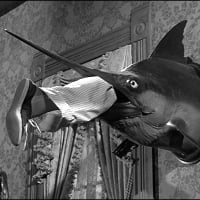In order to participate in the GunBroker Member forums, you must be logged in with your GunBroker.com account. Click the sign-in button at the top right of the forums page to get connected.
Old Glory
 gesshots
Member Posts: 15,678 ✭✭✭✭
gesshots
Member Posts: 15,678 ✭✭✭✭

It's being willing. I found out early that most men, regardless of cause or need, aren't willing. They blink an eye or draw a breath before they pull the trigger. I won't. ~ J.B. Books


Comments
"Never do wrong to make a friend----or to keep one".....Robert E. Lee
A week earlier, Francis Scott Key, a 35-year-old American lawyer, had boarded the flagship of the British fleet on the Chesapeake Bay in hopes of persuading the British to release a friend who had recently been arrested. Key's tactics were successful, but because he and his companions had gained knowledge of the impending attack on Baltimore, the British did not let them go. They allowed the Americans to return to their own vessel but continued guarding them. Under their scrutiny, Key watched on September 13 as the barrage of Fort McHenry began eight miles away.
"It seemed as though mother earth had opened and was vomiting shot and shell in a sheet of fire and brimstone," Key wrote later. But when darkness arrived, Key saw only red erupting in the night sky. Given the scale of the attack, he was certain the British would win. The hours passed slowly, but in the clearing smoke of "the dawn's early light" on September 14, he saw the American flag, not the British Union Jack, flying over the fort, announcing an American victory.
Key put his thoughts on paper while still on board the ship, setting his words to the tune of a popular English song. His brother-in-law, commander of a militia at Fort McHenry, read Key's work and had it distributed under the name "Defence of Fort M'Henry." The Baltimore Patriot newspaper soon printed it, and within weeks, Key's poem, now called "The Star-Spangled Banner," appeared in print across the country, immortalizing his words—and forever naming the flag it celebrated.